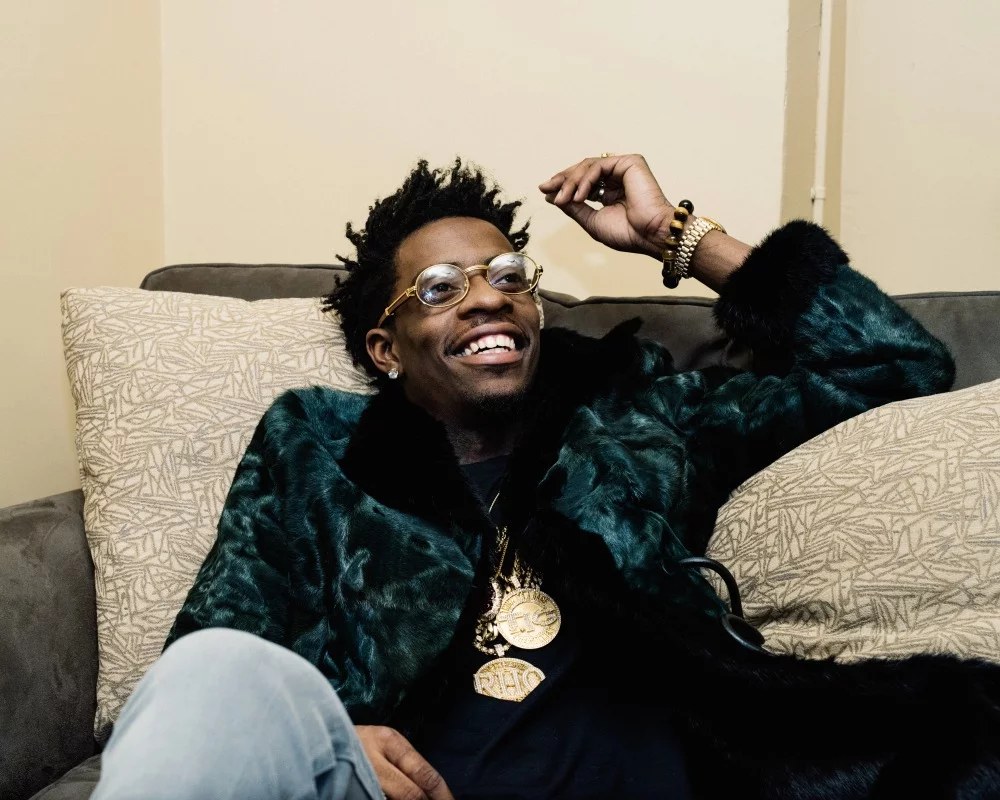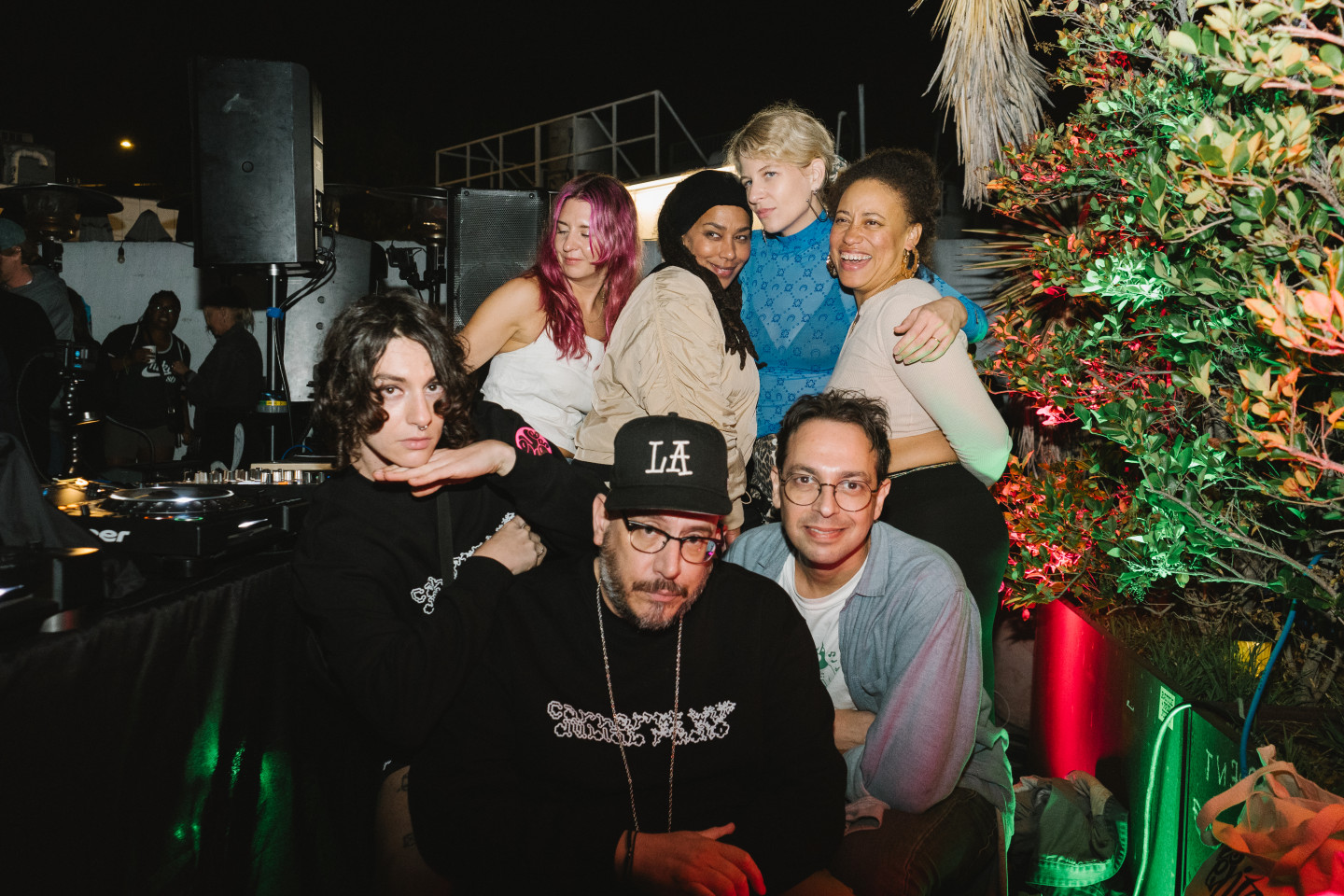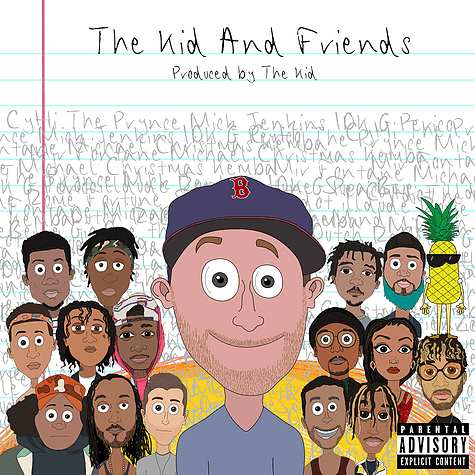Rich Homie Quan. Photo by Ryan Lowry for The FADER
Rich Homie Quan didn’t give his mixtapes titles: he styled them into covenants with the listener. I Go In on Every Song. Still Goin In. I Promise I Will Never Stop Going In. If You Ever Think I Will Stop Goin’ in Ask RR (Royal Rich). These are promises so passionate they could never be merely rhetorical. You can see it in how audiences would sing back the Atlanta rapper’s hits so rapturously, even the DJ had to give a little something. After Quan’s tragic, unexpected passing last week, I did a double-take after reading that he was just 33. The rap industry eagerly eats its children, and Rich Homie Quan helped chart a new path for hip-hop during his too-few years. At his peak in the 2010s, Quan made hip-hop feel like a place where anything was possible, but true greatness could only be achieved if you propped others up too.
Before he was Rich Homie Quan, Dequantes Devontay Lamar was a student in East Atlanta who loved reading and took to baseball. Despite some promise, he never obtained a scholarship, and fell into a life of crime; at 21, he served a 15-month sentence for burglary. “I had nothing but time on my hands,” Quan said in a 2019 interview. “That’s when it became, ‘Quan, what are you good at?’ Poetry… I read a book every day. I wrote a song every day.”
When Quan was released from prison in 2011, the music industry had changed. The vacuum seal had been broken on Atlanta trap, and soon radio playlists far outside the ATL became hotboxes. Titans like Gucci Mane, Jeezy, and T.I had lost their footing for different reasons — legal and creative — and a crop of younger, more excitable artists carried their momentum forward. Quan was crisply tailored for the new environment: 2013 would be his breakout year, buoyed by the success of his solo single “Type of Way” from Still Goin In.
Greg Tate once asked: “Hip-hop is where the hurting ends and the feeling begins, or is that the other way around?” Rich Homie Quan embodied the thrill of that ambiguity. His voice carried the inky black pools that would become the primary well for “pain music,” the subgenre of rap tapped by artists like Rod Wave; it was also a vessel for uninhibited joy.
When Quan sang, his voice had a delightfully slurred quality, emanating from a place where a wound had been successfully numbed. Sometimes the pain was staved off through love: “I Fuck Wit U Girl” is a precursor to emo rap with its melancholic acoustic guitar melody, thudding 808s, and burdened acceptance of his shortcomings. Friendship also lit a fire; this was clear from his hook on YG’s “My Nigga,” a classic of West Coast rap revivalism where Quan sounded close to tears as he promised to stand with his friends till his heart stopped.
For most, Quan’s legacy is defined by his time in Rich Gang. Birdman formed the group in 2013; ever the canny rap impresario, Stunna saw Atlanta’s future as one of hip-hop’s definitive cities and sought to capitalize on it. Alongside Birdman, Quan became one of Rich Gang’s principal artists, joined by another fast-rising Atlanta talent called Young Thug. Tha Tour Part 1, released in 2014, is a miracle of parallel creativity, where two artists whose considerable similarities bring out their respective skills. The tape, split between collabs and solo joints, has sex-positive jams that get borderline existential (“Milk Marie” from Quan, “Tell Em” by both rappers) and titanic flexes as big as the icebergs on their rings (Thug’s “Givenchy,” Quan’s “Everything I Got”). Both Quan and Thugger are proud to be in each others’ presence, hyping each other up across the record like they’re making their way through the stadium tunnel onto the field. “It’s not like we’re trying to compete,” Quan said in his 2015 GEN F profile. “We both want to be the best at what we do, but we still want to help each other. Two voices are always better than one.”
“Lifestyle,” a one-off single, is the Quan/Thug era of Rich Gang’s commercial peak. It was inescapable in the summer of 2014, as ubiquitous as red Solo cups filled with something cold and cleansing. It is a rap song that enters the realm of hymnal, specifically one extolling victory, where regret lives with rewarded faith. Thug commands the song’s first three verses, promising to slide and even die for Quan as the beat glides from sparse and bass-driven to glittering and triumphant on the hook: “Did a lot of shit just to live this here lifestyle.” Thug sighs out these words with both a sly grin and the gravity of a confessional release.
Rich Gang dissolved soon after, and Thug and Quan’s relationship with it. It’s hard to listen to a song like “Lifestyle” and not feel a pang for the era of rap it represented, one that felt just a little more big-hearted than this one. Ten years after “Lifestyle” dropped, hip-hop’s song of the summer would be a diss track created by Kendrick Lamar targeting Drake, a friend turned foe guilty of various perceived sins, including the exploitation of Atlanta rap music. When appraising “Not Like Us” next to another Song of the Summer candidate, I said it was like comparing a neutron bomb with a beautiful garden. I stand by that: As exhilarating as the evisceration of another rapper can be to witness, and as important as the spirit of competition is to hip-hop, part of me yearns for a time that, in hindsight, feels less rancorous and more united.
Quan had crossed my mind in Belgium when I was shadowing Thug in 2019 for a FADER cover story. Thug was performing at Tomorrowland, a festival just outside of Brussels, and “Lifestyle” was one of his final songs. As the unmistakable first notes echoed through the sound system. London on da Track, the song’s producer, joined Thug on stage, and the two twisted their fingers together in camaraderie. My brain sparked: what if Rich Homie makes a surprise appearance to perform his “Lifestyle” verse? Here, at an EDM-centered event in the European countryside? It was far-fetched, but for a moment it felt possible, and I held my breath as Quan’s concluding bars approached. Then, a hail of DJ drops cut off the song, and the moment with it. The DJ transitioned into “Meet Me At The London,” a song featuring J. Cole and Travis Scott intended to launch Thug into a new phase of stardom, leaving songs like “Lifestyle” firmly in the rearview. The crowd continued to dance, and Thug was alone on stage; Quan’s verse became just another “what if” in a genre too full of them.




